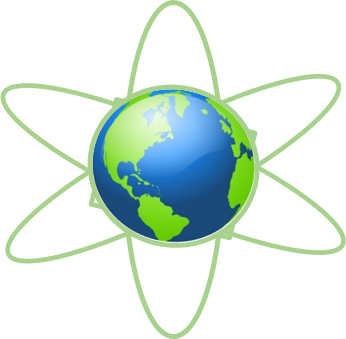ISSN : 2488-8648

International Journal of Basic Science and Technology
Home About IJBST For Authors Issues Useful Downloads Contact
ISSN : 2488-8648

Home About IJBST For Authors Issues Useful Downloads Contact
Questions are asked and these questions need answers. This is the reason why this page is created to enable us share few worries!
×published date:2025-Sep-01
FULL TEXT in -  | page 49 - 54
| page 49 - 54
Abstract
Microplastic pollution presents serious ecological and socio-economic challenges in aquatic environments globally, with estuaries serving as key sites for the accumulation and transport of these pollutants. This study examines microplastic contamination in the Andoni River Estuary, an ecologically and economically important region in the Eastern Niger Delta, which is under significant pollution stress. Through extensive seasonal and spatial sampling of water, sediments, and biota, the research assesses microplastic distribution, polymer types, and associated environmental risks using the Polymer Hazard Index (PHI) and Pollution Load Index (PLI). Results identify polyethylene (PE) and polystyrene (PS) as the most prevalent contaminants, with specific polymers showing seasonal increases linked to wet season runoff and hydrodynamics. Sediments emerge as long-term reservoirs for microplastic pollution, exhibiting higher hazard indices than water, with contamination hotspots, notably at the Opobo/Ataba Channel, remaining consistent across seasons. The study finds strong correlations between microplastic concentrations in water and sediments, indicating shared transport and accumulation processes. This research provides the first comprehensive baseline for microplastic pollution in the Andoni Estuary and highlights the urgent need for targeted mitigation measures to protect the local ecosystem, fisheries, and public health in the Niger Delta region.
Keywords: Microplastic pollution; Andoni River; Estuary,,,,
Akindele, E. O., Ehlers, S. M., & Koop, J. H. (2020). Freshwater insects of different feeding guilds ingest microplastics in two Gulf of Guinea tributaries in Nigeria. Environmental Science and Pollution Research, 27(26), 33373–33379.https://doi.org/10.1007/s11356-020-09665-8
Browne, M. A., Galloway, T. S., & Thompson, R. C. (2015). Microplastics in the seas: Concerns, sources, fate and effects. Marine Pollution Bulletin, 92(1–2), 123–127. https://doi.org/10.1016/j.marpolbul.2014.12.050
Davies, O. A., & Abowei, J. F. N. (2009). Water quality parameters of lower Sombreiro River, Niger Delta, Nigeria. American Journal of Scientific and Industrial Research, 1(2), 27–38. https://doi.org/10.5251/ajsir.2010.1.2.27.38
Ebere, S. I., Ejeke, V. C., & Eze, R. C. (2019). Macrodebris and microplastics pollution in Nigeria: First report on abundance, distribution, and composition. Marine Pollution Bulletin, 143, 92–99. https://doi.org/10.1016/j.marpolbul.2019.01.020
Fulfer, V. M. (2023). Estuaries as filters: Sediment accumulation and plastic retention in coastal systems. Scientific Reports, 13, Article 36228. https://doi.org/10.1038/s41598-023-36228-8
Lithner, D., Larsson, Å., & Dave, G. (2011). Environmental and health hazard ranking and assessment of plastic polymers based on chemical composition. Science of the Total Environment, 409(18), 3309–3324.
López, M.(2021). Microplastics in estuaries: Seasonal dynamics and transport mechanisms. Journal of Marine Systems, 215, Article 103498. https://doi.org/10.1016/j.jmarsys.2021.103498
Nel, H. A., Harmer, R., & Stafford, R. (2024). Microplastics in aquatic ecosystems of Africa: A comprehensive review. Environmental Research, 243, 117237. https://doi.org/10.1016/j.envres.2024.117237
Nworie, O. E., Anyanwu, E. D., & Eze, S. (2024). Assessing concentrations of microplastics as emerging environmental contaminants in Niger Delta estuaries. Research Journal of Pure Science and Technology, 7(6), 9–21.
Odey, J. N., Okafor, E. C., & Usman, A. (2024). Niger Delta study reveals microplastic threat to Escravos estuary. Maritime Technology Review. https://maritimetechnologyreview.com/2025/02/17/niger-delta-study-reveals-microplastic-threat-to-escravos-estuary
Oni, B. A., Ayoola, M. A., & Oluwafemi, R. A. (2020). Macrodebris and microplastics pollution in Nigeria: First report on abundance, distribution, and composition. Environmental Monitoring and Assessment, 192, 327. https://doi.org/10.1007/s10661-020-8235-8
Ranjani, T., et al. (2021). Application of the Polymer Hazard Index (PHI) and Pollution Load Index (PLI) in assessing microplastic pollution in surface water and sediments. Environmental Monitoring and Assessment, 193(8), Article 513. https://doi.org/10.1007/s10661-021-09198-w
Wright, S. L., & Kelly, F. J. (2017). Plastic and human health: A micro issue? Environmental Science & Technology, 51(12), 6634–6647. https://doi.org/10.1021/acs.est.7b00423
Zhao, S., Danley-Thomson, M., & Li, J. (2022). Transport mechanisms and fate of microplastics in estuarine environments. Marine Pollution Bulletin, 182, 113938.https://doi.org/10.1016/j.marpolbul.2022.113938
FULL TEXT in -  | page 49 - 54
| page 49 - 54
Issue 3-Jul-Sep
Issue 2-Apr-Jun
Issue 1-Jan-Mar
Issue 4-Oct-Dec
Issue 3-Jul-Sep
Issue 2-Apr-Jun
Issue 1-Jan-Mar
Issue 4-Oct-Dec
Issue 3-Jul-Sep
Issue 2-Apr-Jun
Issue 1-Jan-Mar
Issue 4-Oct-Dec
Issue 3-Jul-Sep
Issue 2-Apr-Jun
Issue 1-Jan-Mar
Issue 4-Oct-Dec
Issue 2-Apr-Jun
Issue 1-Jan-Mar
Issue 4-Oct-Dec
Issue 3-Jul-Sep
Issue 4-Oct-Dec
Issue 2-Apr-Jun
Issue 1-Jan-Mar
Issue 4-Oct-Dec
Issue 3-Jul-Sep
Issue 2-Apr-Jun
Issue 4-Oct-Dec
Issue 1-Jan-Mar
Copyright © International Journal of Basic Science and Technology | Faculty of Science, Federal University Otuoke 2019. All Rights Reserved.
P.M.B. 126, Yenagoa. Bayelsa state Nigeria
Get the most recent updates
and be updated your self...